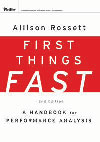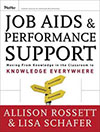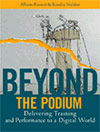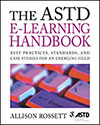I often think about the condition of higher education, but was concerned not at all when I went to see “La Boheme” in a movie theater at the mall.
Opera in San Diego
Opera is very much on the minds of San Diegans. Recently and suddenly, our local opera announced it was closing. The situation here is as it is in many places: aging donors and audiences, increasing costs, decreasing revenue, and competing entertainments. The leader of the opera, Ian Campbell, and his gigantic board, chose to die swiftly at their own hand.
All hell broke loose. Was it as dire as Campbell and the Board proclaimed? Why the rush? Were there no affluent angels in the wings? Why were staff unions not involved in the decision? What of the fate of the 300+ San Diegans who staff the opera? What was up with the large salaries paid to Campbell and his ex-wife, with resentment focusing on Campbell’s salary, the highest among San Diego cultural executives? Reactions were plentiful, as well as personal, expected, mysterious, comical and global. The drama continues.
At the mall
Metropolitan Opera Live in HD far exceeded my expectations. As that judgement sunk in, I considered how technology-delivered opera, something that struck me as very good, is itself an assault on something that is also very good– live, local opera.
Opera in a movie theater has much to offer:
- Technology delivers access to superb talent. Vittorio Grigolo and Kristine Opolais dazzled us. There we were, just down from the food court, and enjoying a front row seat to world-class voices.
- Technology delivers access to a superb experience. “La Boheme” offers gorgeous costumes, special effects, and sets. The action moves from icy garret to Parisien street to snow swept country inn and then back to the garret. I could see it all, never craned my neck, never once yearned for a better seat.
- Technology delivers behind-the-scenes insights. I enjoyed interviews with the stars and supernumaries, and time lapse photography revealing how a set happens. The technical director explained where the snow comes from and of what it is comprised. If you don’t know much about opera, and I do not, this is a wonderful way to begin to get it.
- Technology offers surprise and tension. They had a good story to tell. When Anita Hartig suffered the flu, Kristine Opolais agreed to step in, even though she had sung the lead the night prior, in “Madama Butterfly,” and had not rehearsed her “La Boheme” role on stage. Later, interviewed on NPR about her willingness to sing twice in twenty-four hours, she admitted she had turned to You Tube to review prior to going on stage in the “La Boheme” I saw.
- Technology offers great value for few dollars. My first movie opera cost $22.
Technology is doing the same to higher education.
There is the matter of access to great talent. Do you want to take a class with local Professor X or Nobel Prize Winner Y? Wouldn’t you like to study with that professor in North Carolina who is famous for his ability to make poetry matter? What of that professor known for helping undergraduates see contemporary meaning in Greek Mythology? What about the former US Cabinet member who now leads a university? Wouldn’t you like to hear her thoughts on leadership?
There is the matter of the very best of strategies and experiences. Would you like to be able to see insanely great science demonstrations, to watch them over and over again, to see them from the perspective of several experts, and also to engage in authentic simulations?
What happens when the Dow Jones average loses or gains 500 points? What are experts saying in London, Hong Kong, and New York? What are politicians saying? What about reviewing prior course assignments and projects and feedback from professors and peers?
There is the matter of relationships. Students can work on projects and cases with others from across the country or world. Would you like to tackle a case when economic or climate conditions shift? Maybe you would like to try it a third time, joining local and distant others to collaborate and decide? What about tuning into interviews with researchers turned entrepreneurs and entrepreneurs turned non-profit CEOs? How nice it would be to hop online to converse afterwards or tweet throughout. What do alumni have to say? What about becoming part of a social network sponsored by a professional association aligned with your major?
While personal, individual relationships with faculty are unlikely online, especially when there is one professor serving thousands of students in a MOOC, the truth is that those relationships are idiosyncratic on most campuses, and rare at large universities today. Better perhaps is to acknowledge this, and to leverage technology to assure frequent and substantive interactions with peers, teaching assistants, tutors, alumni, and the occasional faculty person.
Let me stipulate to the fact that great things do happen on campus, many great things, simular to those I described above. They happen sometimes. But they are not typical. It isn’t easy to pull off such experiences for several classes over the length of a sixteen week semester. Just one example– linking current generations of students to those from the past. It is a great idea that happens less often than it ought. I did it. I could have done it more.
Flexibility
The customers of higher ed and opera would benefit from more flexibility. Learning on demand, opera in your living room, what’s not to like?
But flex does not currently characterize either realm. The Met has a schedule for the operas it offers in its magnificent New York opera house. And the same is true of the Met Opera Live in HD series. Customers attend on their schedule.
Higher education also has habits. Schedules, requirements, faculty loads, tenure, legacy admissions, and reviews of online offerings that far exceed the scrutiny offered to campus courses, those are just a few roadblocks to choice. While many speak of how technology increases student control and options, the campus experience, for the most part, is not that.
Money matters
As the cost of opera tickets has skyrocketed, so has the cost of a college education. With decreasing support from state governments, the pricetag for higher education has become a life-altering burden for students and families. Financial ramifications extend to family formation, housing ownership, and thus the larger economy.
Even the President of the United States has weighed in, “Families and taxpayers can’t just keep paying more and more and more into an undisciplined system where costs just keep on going up and up and up. We’ll never have enough loan money, we’ll never have enough grant money, to keep up with costs that are going up 5, 6, 7 percent a year. We’ve got to get more out of what we pay for,” Barack Obama said. The President’s plan is broad and aggressive, touching on who gets served, what constitutes quality, and financial sticks and carrots for universities.
The President and his allies would not be taking on higher education reform without widespread public support for cost controls and second, the potential of technology to influence price and access. Columbia University’s Nicholas Lemann wrote this in the Chronicle of Higher Education, “In the nonacademic world, technological advances have made many products and services cheaper. It seems impossible that the same can’t be true in higher education—especially with the advent of online courses.”
Change is coming– to both
Higher education and opera face threats and opportunities in cultures deep with pomp, brilliance, ego, passion, longing, losses, greed, and alliances. For higher education there is an infusion of new blood, with educational technology firms attracting 1.25 billion dollars in funding in 2013, according to CB Insights. The interest continues into 2014. While the investment numbers for opera are small, some communities are stepping up, as San Diego is now, providing funding while asking for reinvention.
Reinvention? How will higher education and opera respond? The answer is that some will, and some won’t. I’m hoping that our opera and universities will step forward with bold strategic changes, measured results, and commitment to continuous improvement. Either they will do that, or I’m pretty sure that something will do it to them.
Allison Rossett was a professor for more than 30 years and has attended perhaps twenty live operas but only one in a movie theater.







This is great, Allison … marrying two of my loves (learning and opera)! Your point is well taken though that in this day and age being able to access the ‘service’ on the customer’s timeframe is so important. It is exciting though to see how opera houses are finding ways to use technology to get their message out, rally the troops, provide better opera (there have been some amazing uses of technology in the setting of operas such as the Ring Cycle in the Met a couple of years ago), and deliver a 21stc product.
Great analogy Allison! Of course opera has a pretty defined set of works, and each tends to be delivered in full. That constrains how they can use technology. Higher Ed, on the other hand, has a much wider opportunity to change the format(s) of delivery of content as well as the way it is shared by learners. Some inventive institutions will be lucky enough to benefit greatly from this opportunity. More to the point – so will a slew of learners world-wide.
Update on status of the SD Opera…. http://www.nytimes.com/2014/05/20/arts/music/san-diego-opera-raises-money-to-remain-open.html?_r=2
Allison, delighted to hear the news! The survival of the San Diego opera is testament to the power of crowd funding [and the good people of San Diego].
NY Times opinion on the fractious situation at the MET: http://www.nytimes.com/2014/06/23/opinion/labor-talks-turn-bitter-at-metropolitan-opera.html?_r=0
A very different view from the UK’s Guardian: http://www.theguardian.com/music/2014/jun/06/new-york-met-opera-house-edge-precipice
The Wall Street Journal weighs in: http://online.wsj.com/articles/eric-gibson-a-modern-opera-fat-unions-may-kill-the-fat-lady-1403910105
Allison,
I think that the use of technology can not only help the opera, but many other things in our society. Technology is the new way of learning and I think that it is benefiting our community in so many ways. I love this post that you wrote because it gives hope to operas everywhere. I thought that this post was also very interesting. I like that you talked about higher education and how important it is. In our school, we now have our own personal learning devices that help us learn in so many more ways than we could before. I love using technology to better our learning system.